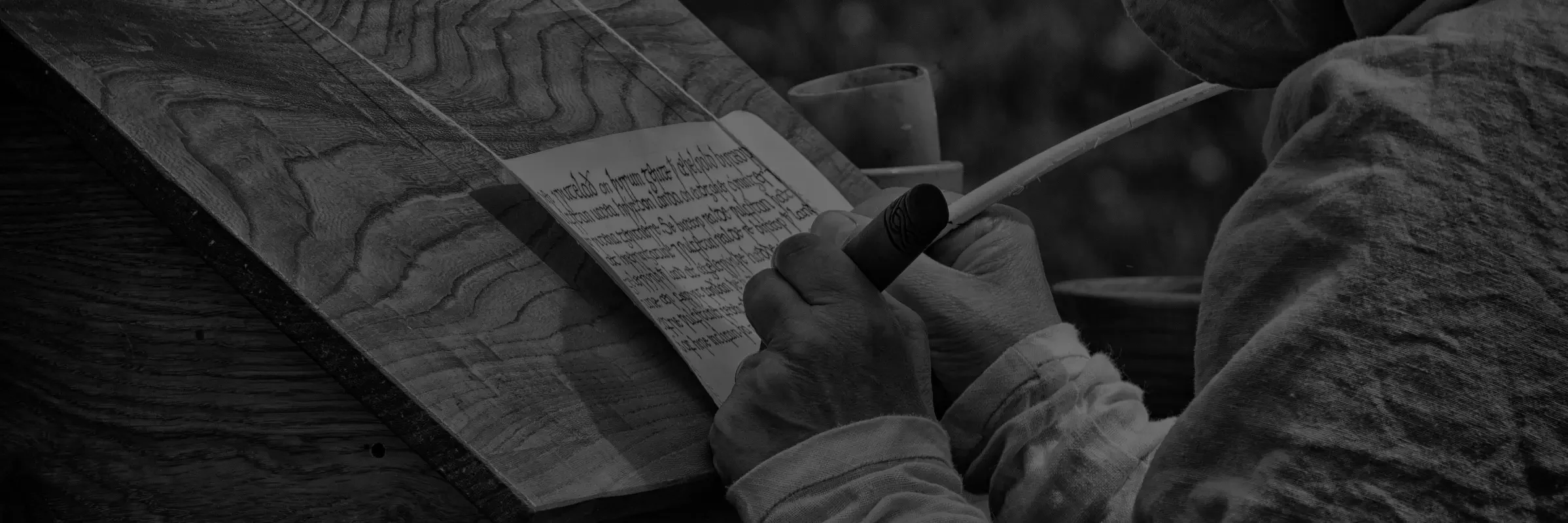Wirral's Hidden History Revealed
The Battle of Cath Chluain Tarbh
The Battle of Cath Chluain Tarbh (Clontarf) APRIL 23RD 1014. The breaking of Viking power in Ireland. The battle of Clontarf is remembered in Ireland as the final event that freed the Irish from the foreign domination by the Norse of Dublin.
The Battle of Chester, 613 – 616
Aethelfrith can be considered as the first great King of Northumbria. He was one of the last northern pagan Kings and he was descended from a long line of warrior ancestors. He detested Christian priests and had a reputation of being ruthless with both them and his other enemies.
The Great Northumbrian Raid on Ireland
The Great Northumbrian Raid on Ireland Sub-Roman Britain saw the various peoples of Britain engaged in parochial warfare for centuries. The various Anglo-Saxon peoples, Picts, Scots of Dal Riata and Britons fought each other in an attempt to carve out their own Kingdoms. Alliances were made and broken with regularity as the powerful subdued the weak and an endless circle of violence…
The Battle of Hatfield
The Battle of Hatfield Penda of mercia, the last anglo-saxon pagan king and Cadwallon Ap Cadfan of Gwynedd meet Edwin of Northumbria at Haethfelth under the shadow of Sherwood Forest.
Somerled, Lord of the Isles
Somerled, Lord of the Isles Somerled, Lord of the Isles – The Gaelic-Norseman who broke the power of the vikings in western Scotland and the Western Isles History is often confusing and hard to follow. Such is the case pertaining to Somerled, known as Sumarlidhi Hold in the Gaelic tongue.
Nova Anglia
Nova Anglia As with many of the myths, legends, conflicting documentary evidence and disagreement between modern day historians and archaeologists pertaining to Anglo Saxon refugees fleeing England following the Norman conquest, the truth cannot be confirmed with any absolute certainty, but equally, therefore, cannot be dismissed or disproved.
The Battles of Maes Garmon
The Romano British defeat a force of Saxons & Picts 429 – 430 AD. In the confusion that followed the end of Roman Britain it is often difficult to establish fact from fiction. The records of the period, those that survive, are often difficult to verify and many of the sources are both contradictory and were not written by contemporary authors who…
The Battles Of Alfred The Great
The Great Heathen Viking army (mycel hæþen here) arrived in England in 865. This time the Vikings or Danes intended to stay and they were intent of carving out their own Kingdom.
Anglo Saxon Tribes & Clans
When the Germanic Anglo-Saxon tribes began to settle in what we now call England, they were a group of different peoples, namely Saxon, Angles and Jutes, who would in time be referred to as Anglo-Saxons. The tribal Hidage, a document or list, which was written between the 7th and 9th centuries, named 34 tribes.
The Saxon Seige Of Anderitum
By 490 AD, it had been 80 years since the Roman army had departed from the Province of Britannia. The Western Empire had officially dissolved some 15 years previously, when the Senate had sent the Imperial Regalia of Rome to the Eastern Emperor in Constantinople.
The Great Barbarian Conspiracy
Saxons, Scotti, Franks, Attacotti, Picts, Rebellious Britons & Renegade Roman Troops Overrun Hadrians Wall & Attack The Province Of Britannia.
The Viking Raid on Lindisfarne
The monastery at Lindisfarne was the pre-eminent religious centre in Northumbria and was acknowledged as such throughout the Kingdom’s of Anglo-Saxon England.
The Five Boroughs of the Danelaw
After years of fighting, Alfred the Great was able to bring the Vikings or Danes to the negotiating table, following his decisive victory at the battle of Edington in 878 AD.
Welsh & The Anglo Saxons
The relationships between the Welsh and the Anglo-Saxons were a complex and often confusing subject. Following the withdrawal of the Roman military in about 410 AD, Southern Britain still maintained Roman Civic and Military organisation whilst various small Kingdoms formed in the North and the West. The Saxons and Angles as well as Jutes and other Germanic groups had been settled in…
Sweyn Forkbeard
Following Athelstan’s victory at Brunanburh in 937 AD, a path lay open to a united England which would see a dynasty of Anglo-Saxon kings rule a country which had, after centuries of warfare with the Vikings finally defeated the northern menace.

